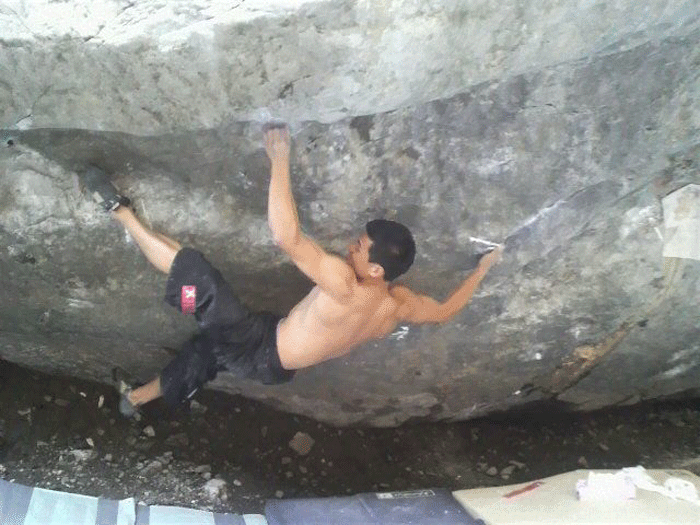Yuji Hirayama Still Has the Power

"Yuji Hirayama on his new problem Ginga at Kanoto, Japan. Courtesy of Ameblo.jp/stonerider/."

Japan’s Yuji Hirayama, one of the great all-around rock climbers of the past decade, has focused on bouldering at home this spring, with impressive results. On April 15, Hirayama made the third ascent of the Dai Koyamada endurance problem Uma (V14) at Shiobara. Koyamada, the best-known Japanese boulderer, established the 22-move problem in 2006.
Less than a week later, Hirayama completed a 13-move problem at Kanoto, near Tokyo, that he has been trying for the past two years. Hirayama called the problem Ginga and rated it 5-dan minus. The Japanese bouldering scale is based on martial arts levels; dan, or black belt, levels begin around V7. The grade of 5-dan minus translates approximately to V14.
Hirayama, 39, came to worldwide prominence as a competition climber; he was the World Cup champion in 2000. In the United States, though, he became famous as a granite crack climber. He onsighted Sphinx Crack (5.13c) in Colorado and made onsight attempts on several El Capitan free routes; although he came up just short of the onsights, he made all-free ascents of the Salathé Wall, Golden Gate, and El Niño. In 2002, Hirayama and Hans Florine set the longtime speed record for climbing the Nose of El Capitan; with the Japanese climber leading the whole way, the two blazed up the route in just under 2 hours 49 minutes. That record was only broken last falland only by a few minutesby Germans Alexander and Thomas Huber.
Dates of Ascents: April 15 and 21, 2008
Sources: Bealplanet.com, Desnivel.com, Ameblo.jp/stonerider/, Thousand-cranes.blogspot.com, Climbing.com
MORE NEWS: